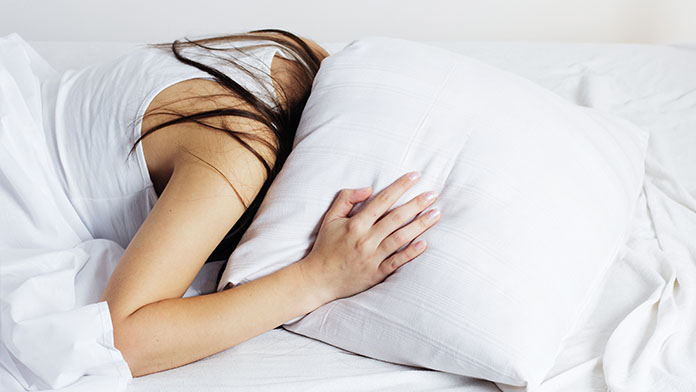Today for thechronic insomnia a new phase has begun which starts from the assumption, in line with the diagnostic criteria, that we are dealing with a 24-hour pathology: not a problem to be stigmatized but a pathology recognized by doctors and patients that must be framed and treated in appropriate manner. «Finally, insomnia is classified as a disorder in its own right that has both a nocturnal component, whereby the patient finds it difficult to fall asleep or stay asleep, and a daytime component with specific consequences during the day such as irritability, poor concentration and attention, drowsiness,” he says Liborio ParrinoDirector of the School of Specialization in Neurology and Director of the Sleep Medicine Center of the University of Parma, SC Director of Neurology AOU of Parma.
Insomnia: a promising new drug is on its way
“Insomnia therefore presents itself as a 24-hour disease, a pathology with its own dignity and not as a secondary symptom of something else”. From the first signs, therefore, it is a pathology that should be evaluated, framed and treated according to international guidelines. After many years of trials and studies, a new therapeutic perspective has come from the research of the pharmaceutical company Idorsia for the specific treatment of adult patients suffering from chronic insomnia: it is called daridorexant and is the first drug of a class, orexin inhibitorsa neurotransmitter essential for maintaining wakefulness.
“Studies have shown that daridorexant works on the quality and quantity of sleep and remains effective even when taken for long periods,” he explains Luigi Ferini StrambiFull Professor of Neurology Vita-University
Health of Milan, Director of the IRCCS Sleep Medicine Center at the San Raffaele Hospital in Milan. «The big advantage of this drug is its optimal half-life of eight hours: this means that it prevents the functioning of the orexin for a period of time coinciding with sleep. In the morning the orexin starts working again and consequently the drug does not give sedation after waking up. Controlled studies conducted with daridorexant have in fact demonstrated the absence of daytime sleepiness and cognitive problems.
